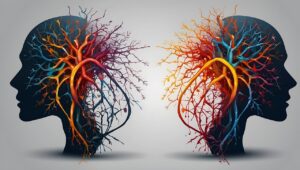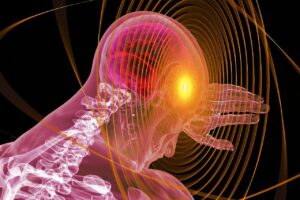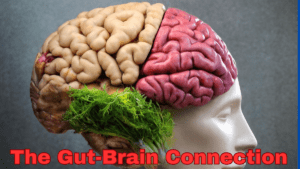Meta Description:
Discover the fascinating gut-brain connection and learn how your diet can impact your mood, mental health, and overall well-being. Explore tips for a happier, healthier mind in 2024.
Introduction:
Did you know your gut is often called your “second brain”? Science has uncovered a remarkable connection between the gut and the brain, showing that what you eat can significantly influence your mood and mental well-being. From boosting happiness to reducing anxiety, the foods on your plate may be more powerful than you think! This article will explore the intricate link between diet and emotions, backed by the latest research. Get ready to discover practical tips to improve your mental health through your gut. Let’s dive in!
Main Headings and Subtopics (H2s):
H2: What Is the Gut-Brain Connection?
- Overview of the gut-brain axis (GBA)
- Role of the vagus nerve in communication
- Microbiome and neurotransmitter production
H2: How Diet Affects Your Gut Microbiome
- What is the gut microbiome?
- Foods that feed good bacteria (prebiotics and probiotics)
- Impact of processed foods on gut health
H2: The Link Between Diet and Mood
- How gut health influences serotonin production
- Diet and its effects on anxiety and depression
- Real-life examples and case studies
H2: Foods That Boost Your Mood
- Fermented foods like yogurt, kimchi, and kefir
- Fiber-rich foods: vegetables, fruits, and whole grains
- Omega-3 fatty acids and their mood-boosting effects
H2: Foods to Avoid for Better Gut and Mental Health
- Sugar and its impact on inflammation and mood swings
- Artificial sweeteners and their effects on gut bacteria
- Highly processed foods and mental fog
H2: Simple Tips to Improve Your Gut Health for a Better Mood
- Balancing your plate with whole, natural foods
- Incorporating probiotics and prebiotics daily
- Reducing stress and its effect on the gut
H2: The Future of Gut-Brain Research in 2024
- Latest advancements in gut-brain studies
- Personalized nutrition for mental health
- Emerging probiotics and supplements

What Is the Gut-Brain Connection?
The gut-brain connection, often called the gut-brain axis (GBA), is a complex communication network that links your gastrointestinal tract to your brain. This bidirectional system influences not only your digestive health but also your mood, emotions, and overall mental well-being. Let’s break it down:
Overview of the Gut-Brain Axis (GBA)
The gut-brain axis is a dynamic relationship between the central nervous system (CNS) and the enteric nervous system (ENS), often called the “second brain.” This connection enables the brain and gut to share signals through various pathways, including nerves, hormones, and immune system responses.
- The gut produces neurotransmitters like serotonin, which affect emotional regulation.
- The brain sends signals to the gut, influencing digestion and microbiome balance.
This two-way communication means that what happens in the gut can affect the brain and vice versa.
Role of the Vagus Nerve in Communication
At the heart of this connection lies the vagus nerve, the main highway for signals traveling between the brain and gut.
- The vagus nerve acts like a telephone line, transmitting information about the state of the gut (like stress, inflammation, or nutrient availability) directly to the brain.
- It also works in reverse, allowing the brain to influence gut processes, such as motility and secretion.
This nerve plays a crucial role in stress responses, as gut disturbances often signal the brain to release stress hormones like cortisol.
Microbiome and Neurotransmitter Production
Your gut houses trillions of microorganisms collectively known as the gut microbiome. These bacteria aren’t just passengers—they actively produce compounds that influence brain function.
- Serotonin, a neurotransmitter that regulates mood, is 90% produced in the gut.
- Gut bacteria also produce gamma-aminobutyric acid (GABA) and dopamine, which impact anxiety and motivation.
- A healthy microbiome supports the production of these neurotransmitters, while an imbalanced microbiome can lead to mood disturbances like anxiety or depression.
Understanding the gut-brain connection emphasizes the profound impact your gut health has on your mental state, making it a cornerstone of holistic health approaches.
How Diet Affects Your Gut Microbiome
Your diet plays a significant role in shaping the health of your gut microbiome, the ecosystem of trillions of microorganisms residing in your digestive tract. This delicate balance of bacteria and other microbes directly influences not only your digestion but also your immune system, mood, and overall well-being.
What Is the Gut Microbiome?
The gut microbiome is a vast community of bacteria, fungi, viruses, and other microorganisms living in your gut. While the term “bacteria” often has a negative connotation, many gut microbes are essential for maintaining good health.
- These microbes help digest food, produce essential vitamins, and protect against harmful pathogens.
- The diversity and balance of your microbiome are crucial for its functionality. A disrupted or imbalanced microbiome, known as dysbiosis, can lead to various health problems, including inflammation, digestive issues, and mood disorders.
Foods That Feed Good Bacteria (Prebiotics and Probiotics)
The types of food you consume directly affect the composition of your gut microbiome. To promote a healthy gut, it’s essential to nourish the beneficial bacteria.
- Prebiotic Foods:
Prebiotics are types of dietary fiber that feed the good bacteria in your gut, helping them thrive. Examples include:- Bananas
- Garlic
- Onions
- Asparagus
- Whole grains
- Probiotic Foods:
Probiotics are live bacteria that replenish and strengthen your gut microbiome. Common probiotic-rich foods include:- Yogurt
- Kimchi
- Sauerkraut
- Kefir
- Miso
By incorporating both prebiotics and probiotics into your diet, you create an environment that supports microbial diversity and health.
Impact of Processed Foods on Gut Health
On the flip side, a diet high in processed foods can harm your gut microbiome. These foods are often:
- Low in fiber, depriving good bacteria of their essential fuel.
- High in sugar, which promotes the growth of harmful bacteria and leads to inflammation.
- Filled with artificial additives and preservatives, which can disrupt microbial diversity.
Over time, a diet dominated by processed foods can lead to dysbiosis, increasing the risk of digestive issues, immune dysfunction, and even mental health problems.

The Link Between Diet and Mood
The connection between diet and mood is rooted in the gut-brain axis, where your gut health plays a significant role in regulating your emotions. From serotonin production to the impact of inflammation, what you eat can directly influence your mental state. Let’s dive deeper into how this works.
How Gut Health Influences Serotonin Production
Serotonin, often referred to as the “happiness hormone,” is a neurotransmitter that regulates mood, sleep, and appetite. Interestingly, about 90% of serotonin is produced in the gut, not the brain.
- Gut bacteria play a key role in producing and regulating serotonin by breaking down dietary nutrients into precursors like tryptophan.
- A healthy microbiome ensures a steady production of serotonin, which supports emotional balance and reduces mood swings.
- On the flip side, an imbalanced gut microbiome (dysbiosis) can lead to decreased serotonin levels, contributing to feelings of anxiety and depression.
Diet and Its Effects on Anxiety and Depression
Studies have shown a strong link between dietary habits and mental health outcomes, particularly anxiety and depression.
- Anti-inflammatory diets (rich in fruits, vegetables, and healthy fats) have been associated with lower rates of depression and anxiety.
- Diets high in processed foods, sugars, and unhealthy fats can increase inflammation, which negatively affects both gut health and brain function.
- Nutrients like omega-3 fatty acids, B vitamins, and magnesium, commonly found in whole foods, are critical for brain health and emotional stability.
By maintaining a gut-friendly diet, you can help stabilize mood-regulating processes, reducing the likelihood of anxiety and depressive episodes.
Real-Life Examples and Case Studies
- Case Study: Mediterranean Diet and Depression
In a 2019 study, participants with moderate depression switched to a Mediterranean-style diet, which is rich in whole grains, vegetables, fruits, and healthy fats. Over 12 weeks, many participants reported significant improvements in mood, with some experiencing complete remission of depressive symptoms. - Personal Testimonies:
Many individuals have shared anecdotal evidence of how dietary changes transformed their mental health. For instance:- Adding fermented foods like yogurt or kimchi helped reduce anxiety levels within weeks.
- Cutting out processed foods and sugar led to noticeable improvements in energy and emotional stability.
- Children’s Diet and Behavior:
Research has shown that children with ADHD or behavioral challenges often benefit from diets rich in fiber and omega-3s, as these nutrients support both gut and brain function.
Foods That Boost Your Mood
Your diet plays a significant role in how you feel. Here are some foods scientifically known to improve your mood:
- Fermented Foods
Fermented foods like yogurt, kimchi, and kefir are rich in probiotics, which support a healthy gut. A healthy gut contributes to better brain health, often improving mood and reducing stress. - Fiber-Rich Foods
Vegetables, fruits, and whole grains are excellent sources of fiber. Fiber helps regulate blood sugar levels and feeds beneficial gut bacteria, both of which can positively impact mood. - Omega-3 Fatty Acids
Found in fatty fish (like salmon, mackerel, and sardines), walnuts, and flaxseeds, omega-3 fatty acids are essential for brain health. They are linked to reduced symptoms of depression and anxiety.

Foods to Avoid for Better Gut and Mental Health
What you eat not only affects your body but also your mind. Here are some foods to steer clear of for better gut and mental health:
- Sugar
Excessive sugar consumption can lead to inflammation in the body, which is linked to mood swings and fatigue. High sugar intake can also negatively impact brain function, contributing to feelings of irritability or depression. - Artificial Sweeteners
Artificial sweeteners, such as aspartame and saccharin, can disrupt gut bacteria, leading to imbalances in your gut microbiome. Since the gut and brain are closely connected, these imbalances can contribute to stress, anxiety, and even depression. - Highly Processed Foods
Foods high in preservatives, unhealthy fats, and artificial additives can cause mental fog, fatigue, and irritability. These foods often lack the nutrients your brain needs to function properly, leading to negative effects on mood and cognitive health.
Simple Tips to Improve Your Gut Health for a Better Mood
A healthy gut plays a crucial role in improving your mood and overall well-being. Here are some simple yet effective tips to boost your gut health:
- Balance Your Plate with Whole, Natural Foods
Focus on eating whole, minimally processed foods like fresh fruits, vegetables, lean proteins, and healthy fats. These foods provide the nutrients your gut needs to thrive and reduce inflammation, which can positively affect your mood. - Incorporate Probiotics and Prebiotics Daily
- Probiotics: Found in foods like yogurt, kimchi, kefir, and sauerkraut, probiotics introduce beneficial bacteria to your gut.
- Prebiotics: Foods like garlic, onions, bananas, and oats feed these good bacteria, helping them flourish. Aim to include both in your diet every day for optimal gut health.
- Reduce Stress and Its Effect on the Gut
Chronic stress can harm your gut health, leading to discomfort and mood disturbances. Practice stress-reducing activities like meditation, deep breathing, regular exercise, or spending time in nature to keep your gut-brain connection strong.

The Future of Gut-Brain Research in 2024
The connection between gut health and mental well-being continues to gain attention. Here are some exciting developments to watch in 2024:
- Latest Advancements in Gut-Brain Studies
Researchers are uncovering more about the gut-brain axis—the communication network between the gut and the brain. Cutting-edge studies are exploring how specific gut bacteria influence neurotransmitters like serotonin and dopamine, potentially offering new treatments for anxiety, depression, and other mental health conditions. - Personalized Nutrition for Mental Health
Personalized nutrition, based on an individual’s gut microbiome, is becoming a key focus. By analyzing a person’s unique gut bacteria, scientists can create tailored diets to improve mental health, optimize gut function, and enhance overall well-being. - Emerging Probiotics and Supplements
New probiotics designed to target specific mental health challenges are on the rise. These advanced formulations may help manage conditions like stress, insomnia, and mood disorders. Additionally, supplements containing prebiotics, postbiotics, and novel strains of beneficial bacteria are becoming more widely available and effective.
FAQ: The Gut-Brain Connection – How Diet Affects Mood in 2024
- What is the gut-brain connection?
The gut-brain connection refers to the communication network between the gastrointestinal system (gut) and the brain. This connection is facilitated by the vagus nerve and involves neurotransmitters, hormones, and gut bacteria, influencing mood, emotions, and mental health. - How does diet impact my mood?
Your diet affects the balance of gut bacteria, which play a crucial role in producing neurotransmitters like serotonin and dopamine. Eating nutrient-rich foods can promote a healthy gut microbiome, positively affecting mood and reducing stress, anxiety, and depression. - What are the best foods for a healthy gut and mood?
- Probiotics: Yogurt, kefir, kimchi, sauerkraut.
- Prebiotics: Bananas, garlic, onions, oats.
- Omega-3 fatty acids: Fatty fish, walnuts, flaxseeds.
- Fiber-rich foods: Vegetables, fruits, and whole grains.
- What foods should I avoid for better mental health?
Highly processed foods, excessive sugar, artificial sweeteners, and unhealthy fats can harm gut bacteria, leading to inflammation and mood swings. - Are probiotics effective for improving mood?
Yes, certain probiotics have been shown to improve gut health and may enhance mood by reducing anxiety and depression. However, effectiveness varies, and it’s best to consult with a healthcare provider before starting new supplements. - Can stress affect the gut-brain connection?
Absolutely. Chronic stress can disrupt gut health by altering the microbiome and increasing inflammation, which can negatively impact mood and mental clarity. - What is the latest research on the gut-brain connection in 2024?
Recent studies focus on personalized nutrition, where diets are tailored to individual microbiomes and the development of targeted probiotics designed to improve mental health. - How can I improve my gut-brain connection through lifestyle changes?
- Adopt a diet rich in whole, natural foods.
- Incorporate probiotics and prebiotics daily.
- Manage stress with activities like meditation, yoga, or exercise.
- Stay hydrated and prioritize sleep.
- Is there a link between gut health and specific mental health conditions?
Yes, research has shown connections between gut health and conditions such as depression, anxiety, and even cognitive disorders like Alzheimer’s disease. A healthy gut may help alleviate some symptoms of these conditions. - Where can I learn more about gut-brain health in 2024?
You can follow reputable health websites, and academic journals, or consult with nutritionists and healthcare providers who specialize in gut health and mental well-being. Look for updates on personalized nutrition and emerging probiotics.

Semantic Keywords:
- gut-brain axis
- gut microbiome
- mental health and diet
- foods for mental health
- probiotics
- prebiotics
- serotonin production
- vagus nerve
- gut health and depression
- anxiety and gut health
- fermented foods
- fiber and mood
- inflammation and mental health
- omega-3 for mental health
- healthy gut bacteria
- gut-friendly foods
- brain-gut connection
- stress and gut health
- microbiome diversity
- sugar and gut health
- mood-boosting foods
- processed foods and mental health
- diet and emotional health
- personalized nutrition
- gut-brain research
- mental fog and diet
- gut inflammation
- holistic health
- dietary tips for mental health
- nutrition and mood
- gut-healing foods
- brain health foods
- serotonin in the gut
- digestive health
- mind-gut connection
- anti-inflammatory diet
- artificial sweeteners and mood
- Brain function and diet
- healthy eating for mental health
- gut-brain supplements
- emotional well-being
- healthy diet habits
- stress reduction foods
- mind-body connection
- gut health studies 2024
- vagus nerve stimulation
- diet psychology
- mental wellness
Conclusion:
The gut-brain connection is a powerful reminder of how deeply our bodies and minds are intertwined. By nourishing your gut with the right foods, you can foster a positive mood, reduce stress, and enhance your overall well-being. Start small—try adding more gut-friendly foods to your diet today. Ready to take the first step toward a happier, healthier you? Your gut (and brain) will thank you!

Leave a Reply